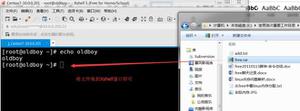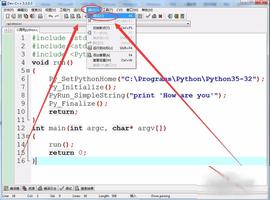【Python】Python怎么将两个功能相同的装饰器高阶函数,一个带参数一个不带参数的合并成一个装饰器?请前辈指点一二,十分感谢?
Python的装饰器怎么将两个功能相同的函数,一个带参数一个不带参数的合并成一个函数?
获取本地时间方法
def get_now_local_time():return time.strftime('%Y-%m-%d %H:%M:%S', time.localtime(time.time()))
装饰器1
def log1(func):@functools.wraps(func) # 保持传入的函数名称不被返回函数改变
def wrapper(*args, **kwargs):
print('%s %s():' % ("begin call", func.__name__))
call_func_ref = func(*args, **kwargs)
print('%s %s():' % ("end call", func.__name__))
return call_func_ref
return wrapper
@log1 # 为函数添加无参数装饰器def now():
print('Current local time:' + get_now_local_time())
now()
无参装饰器函数调用输出
begin call now():Current local time:2016-10-12 23:51:11
end call now():
装饰器2
def log2(text=None):def decorator(func):
@functools.wraps(func) # 保持传入的函数名称不被返回函数改变
def wrapper(*args, **kwargs):
print('%s %s():' % (("begin " + text), func.__name__))
call_func_ref = func(*args, **kwargs)
print('%s %s():' % (("end " + text), func.__name__))
return call_func_ref
return wrapper
return decorator
@log2('execute current the function') # 为函数添加带参数装饰器def now():
print('Current local time:' + get_now_local_time())
now()
带有参装饰器函数调用输出
begin execute current the function now():Current local time:2016-10-12 23:49:25
end execute current the function now():
想做完成这两个函数的合并编码,该怎么写?请大牛前辈给指点一下呗,谢谢~~~
回答
# -*- coding: utf-8 -*-import functools
import time
def get_now_local_time():
return time.strftime('%Y-%m-%d %H:%M:%S', time.localtime(time.time()))
def log(text):
def decorator(func):
@functools.wraps(func)
def wrapper(*arg, **kwarg):
print('%s, %s()' % ('begin call',func.__name__) if callable(text) else \
'%s %s():' % (("begin " + text), func.__name__))
func(*arg, **kwarg)
print('%s, %s()' % ('end call', func.__name__) if callable(text) else \
'%s %s():' % (("end " + text), func.__name__))
return wrapper
return decorator(text) if callable(text) else decorator
@log
def now():
print('Current local time:' + get_now_local_time())
now()
print('==' * 50)
@log('execute current the function') # 为函数添加带参数装饰器
def now():
print('Current local time:' + get_now_local_time())
now()
需求是不是这样子的

callable(object)的文档解释

from types import FunctionTypedef log2(*params):
assert (len(params)==1)
if type(params[0])==FunctionType:
func=params[0]
@functools.wraps(func) # 保持传入的函数名称不被返回函数改变
def wrapper(*args, **kwargs):
print('%s %s():' % (("begin call"), func.__name__))
call_func_ref = func(*args, **kwargs)
print('%s %s():' % (("end call"), func.__name__))
return call_func_ref
return wrapper
else:
text=params[0]
def decorator(func):
@functools.wraps(func) # 保持传入的函数名称不被返回函数改变
def wrapper(*args, **kwargs):
print('%s %s():' % (("begin " + text), func.__name__))
call_func_ref = func(*args, **kwargs)
print('%s %s():' % (("end " + text), func.__name__))
return call_func_ref
return wrapper
return decorator
@log2 # 为函数添加无参数装饰器
def now():
print('Current local time:' + get_now_local_time())
@log2('execute current the function') # 为函数添加带参数装饰器
def now2():
print('Current local time:' + get_now_local_time())
now()
now2()
输出结果:
begin call now():Current local time:2016-10-13 15:12:31
end call now():
begin execute current the function now2():
Current local time:2016-10-13 15:12:31
end execute current the function now2():
可实现在没有参数时不用加括号的形式。
def log2(text='call'): def decorator(func):
@functools.wraps(func) # 保持传入的函数名称不被返回函数改变
def wrapper(*args, **kwargs):
print('%s %s():' % (("begin " + text), func.__name__))
call_func_ref = func(*args, **kwargs)
print('%s %s():' % (("end " + text), func.__name__))
return call_func_ref
return wrapper
return decorator
@log2('execute current the function') # 为函数添加带参数装饰器
def now():
print('Current local time:' + get_now_local_time())
now()
@log2() # 为函数添加无参数装饰器
def now():
print('Current local time:' + get_now_local_time())
now()
以上是 【Python】Python怎么将两个功能相同的装饰器高阶函数,一个带参数一个不带参数的合并成一个装饰器?请前辈指点一二,十分感谢? 的全部内容, 来源链接: utcz.com/a/81075.html






